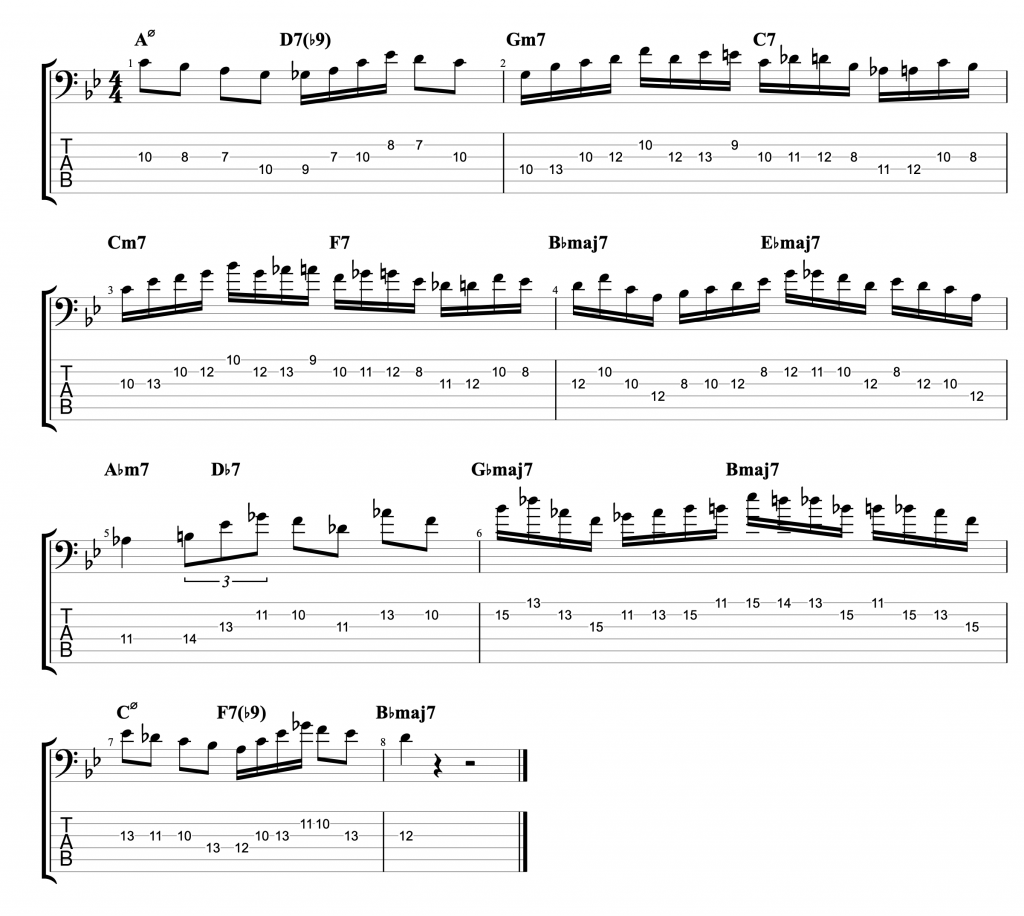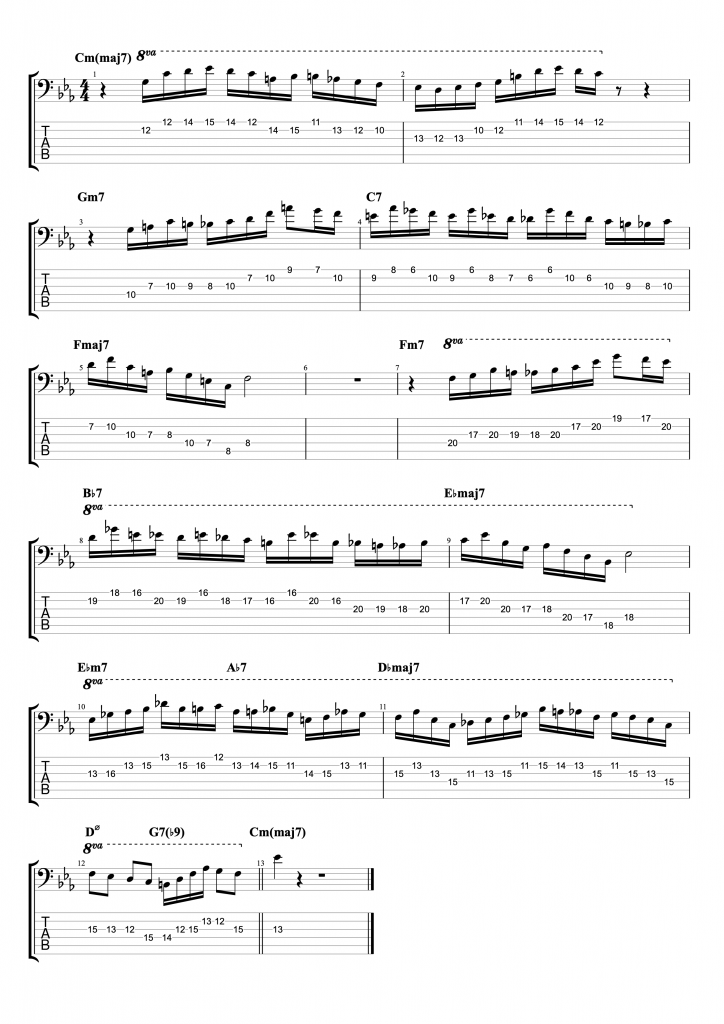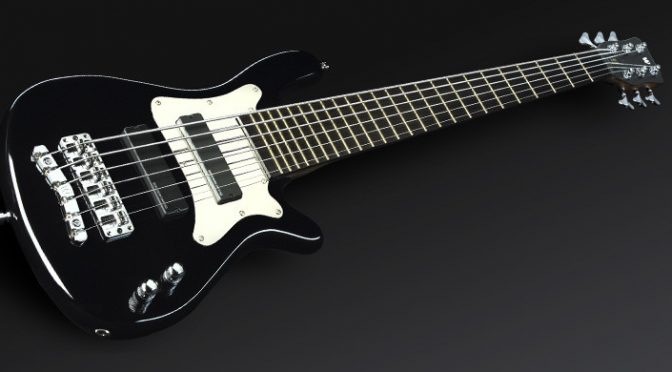Jazz Vocabulary on Jazz Standards with Six String Bass – Bass Practice Diary – 20th August 2019
Last week I was writing out and practicing 16th note jazz lines on II-V-I’s. When you’re practicing jazz vocabulary like that, the next logical step is to try to apply the vocabulary to the chord changes of a tune or jazz standard. And that’s what I’ve been doing this week.
Why do jazz musicians practice playing II-V-I’s?
When I first came across the idea of practicing II-V-I’s, I couldn’t understand why jazz musicians were so obsessed with this one very simple chord progression. But now I get it. Because once you can play lines on II-V-I’s, you can then use those lines in such a huge number of musical situations. Even when there isn’t a II-V-I written in the music, you can superimpose the II-V-I harmony with your lines over it.
Here are just a few examples of what I’m talking about. If you are playing on a minor 7th chord. You can treat that chord as a chord II and play II-V lines over it. Or, if you’re playing on a dominant 7th chord, you can treat it as a V chord and do the same thing. The most obvious place to superimpose a II-V-I is on a major chord or major 7th chord. Using these kind of ideas, jazz musicians have become masters of turning just about any harmonic progression into a sequence of II-V’s or II-V-I’s.
So if you can get good at improvising on II-V-I’s, then you can improvise on so many different chord progressions and harmonies.
Applying jazz vocabulary to standards
Practicing jazz vocabulary in this case just means playing lines that work over common jazz chord changes. Most commonly II-V-I’s. It’s essentially like learning licks. The vocabulary could be lines that you’ve worked out yourself or they could be lines played by someone else. If you’re going to learn to improvise in a jazz style, I think it’s essential to practice some jazz vocabulary. And that’s basically what I was doing last week.
When you practice jazz vocabulary it’s a good idea to transpose it into different keys. It’s an even better idea to apply it to the changes of a real jazz standard. Because then you have to think about how and where you can use the lines. As well as changing the key to follow the harmonic movement of the standard.
I’ve written out two examples. This first one is on the first eight bars of In Your Own Sweet Way.

As you can see, there are lots of II-V’s in this tune. Both major and minor. So, it works really well for applying this kind of jazz vocabulary. My next example was on Miles Davis’ tune Solar.

Why practice jazz vocabulary?
Now I should point out, as I did in the video, that this is just an exercise. I wouldn’t choose to improvise like this. Because I don’t use licks or preprepared vocabulary when I improvise. I know that a lot of jazz musicians do use licks in their solos. And there’s nothing wrong with doing that. But it doesn’t work for me. Because I see improvisation as spontaneously creating something in the moment. And that’s what I love about it. If I were to apply a preprepared idea into an improvisation it would feel incongruous to me, and so I don’t do it.
The reason that I practice licks and vocabulary is so that I can hopefully absorb the sounds and melodic ideas. So that hopefully when I want to improvise a jazz solo, I can come up with similar ideas of my own.

